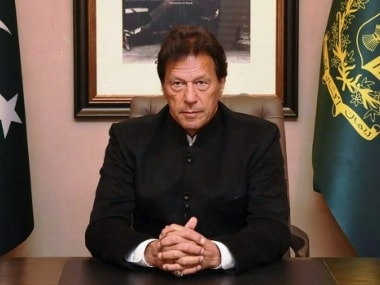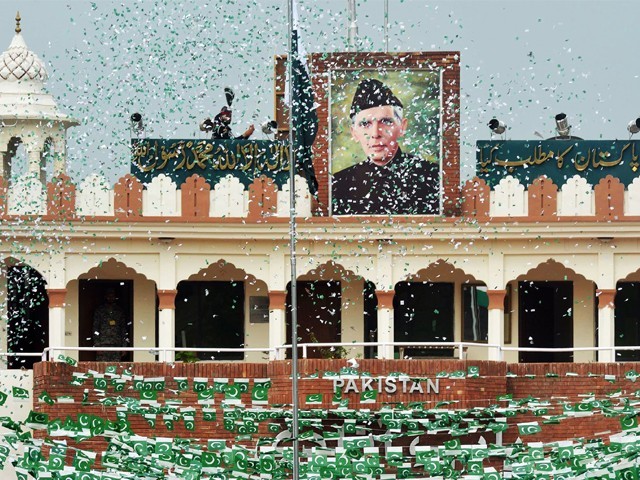If it wasn’t such a dangerous situation, the statements coming thick and fast from Pakistan would be hilarious and perplexing. Pakistan prime minister Imran Khan is his speech aimed mostly at the international community and his domestic audience — leaning forward at each word and gesture — prof-erred advice to India on Kashmir, and promised to take immediate action if India provided ‘actionable’ intelligence on the involvement of Pakistan in the Pulwama attacks.
According to Khan, this was a “Naya” Pakistan that would act differently. To most watchers, however, it seemed remarkably like the same old Pakistan, protesting too much and doing precious little. Yes, the Pakistan prime minister is considerably better looking than that poor Nawaz Sharif, now showing his age as he battles multiple cases. But that’s about all.

To an ignorant observer, Imran’s speech would have seemed to be entirely sincere, especially when he asked what Pakistan had to gain from an attack at a time when it was seeking financial assistance from one and all. The observer, however uninformed, would only have to type in “Jaish-e-Mohammed” into a search engine to get all the details of the outfit’s huge buildings and campuses in Bahawalpur in the province of Punjab.
Thereafter if interested, he or she could also access an interesting input. Recent reports amply demonstrate Jaish-e-Mohammed chief’s threats against Kashmir, and Pulwama specifically, during a rally on 5 February in Peshawar barely nine days before the attack. That is the date when Pakistan marks “Kashmir Solidarity Day” when extremist and terror groups show their muscle at rallies where every kind of threat against India, and its leaders are publicly made. Really, Prime Minister Khan, it’s simply far too easy to see.
In the same taped broadcast, Khan also chose to warn India that Pakistan would retaliate against any attack, which is something that would be expected from the prime minister of a country that is in danger. However, the curious part is that he chose to make these statements five days after the Pulwama attack, and well after Prime Minister Narendra Modi’s own warning of a suitable retaliation. Khan’s stated position is that he was busy with the Saudi prince, which is somewhat plausible since he was engaged in driving the royal around. But no head of a country is likely to react so slowly to a threat of war unless he was either waiting for some commitment/information from some source or, else he’s been told to make such a statement by the powers that stand at his elbow. Reports pointing to 35 cuts and editing in the video only fuelled this speculation.
Since then others in his entourage, probably fired by his public indignation have been up in arms. The Pakistan foreign minister pre-empted his chief by calling for proof (16 February) of Jaishe-Mohammed’s hand in the attack, probably reading from a statement that lies in triplicate in a file related to the 26/11 Mumbai Attacks. Former Pakistan cricket captain Shahid Afridi backed Khan to the hilt, but clearly far more upset at the cancellation of the forthcoming matches of the Pakistan Super League.
A far more extreme position came from Pakistan Ambassador to Afghanistan Zahid Nasrullah Khan who chose to issue a statement that peace talks between the US and the Taliban would be affected if India resorted to violence. This created a hum on social media and seemed to expose Pakistan’s game of blackmail and efforts to drag the US into the whole. The statement was, however, less undiplomatic than it seemed. Next week, the US representative is to meet with Taliban leaders at Qatar. The Pakistan ambassador was making a threat that he could easily deliver on. In the event, the US didn’t rise to the bait. The US National Security Advisor supported India’s right to self-defence, as did Secretary of State Mike Pompeo.
The situation then went from strange to stranger as other Pakistani officials weighed in. Sheik Rashid, a politician who changes parties like he changes his clothes, waxed eloquent declaring, “If anyone tries to look at Pakistan with evil in their minds, their eyes will be gouged out…. Neither will birds chirp nor will bells ring at the temples after that.” With that, there seemed little more to say. Memes and ribaldry prevailed on social media, bringing the whole situation to the level of a circus, and a very poor one at that.
The outcry seemed to be an exercise in one-upmanship. In the middle of all this melee, the usually loquacious Director General ISPR ( Inter-Services Public Relations) Major General Asif Ghafoor was unexpectedly silent. So did the military brass. It would have seemed a dignified silence, but for this barrage of statements from persons like Rashid who are practically unofficial spokespersons for the establishment. In all this, there is one clear danger. In India, it is the prime minister who outlined the position of the government and gave the decision making to the Indian Armed Forces on how to implement his directive. That is how a democratic country works, despite the apparent noise and flurry of public hyperventilating. In Pakistan, it is still unclear, and thereby there is always a risk of misinterpretation of signals and a possible unintended escalation. It’s time to stop the bluster and inject some sober reality into statements. This is all getting too much like reality TV. Except that this is about war and loss of lives, and somewhere, someone may blunder.




